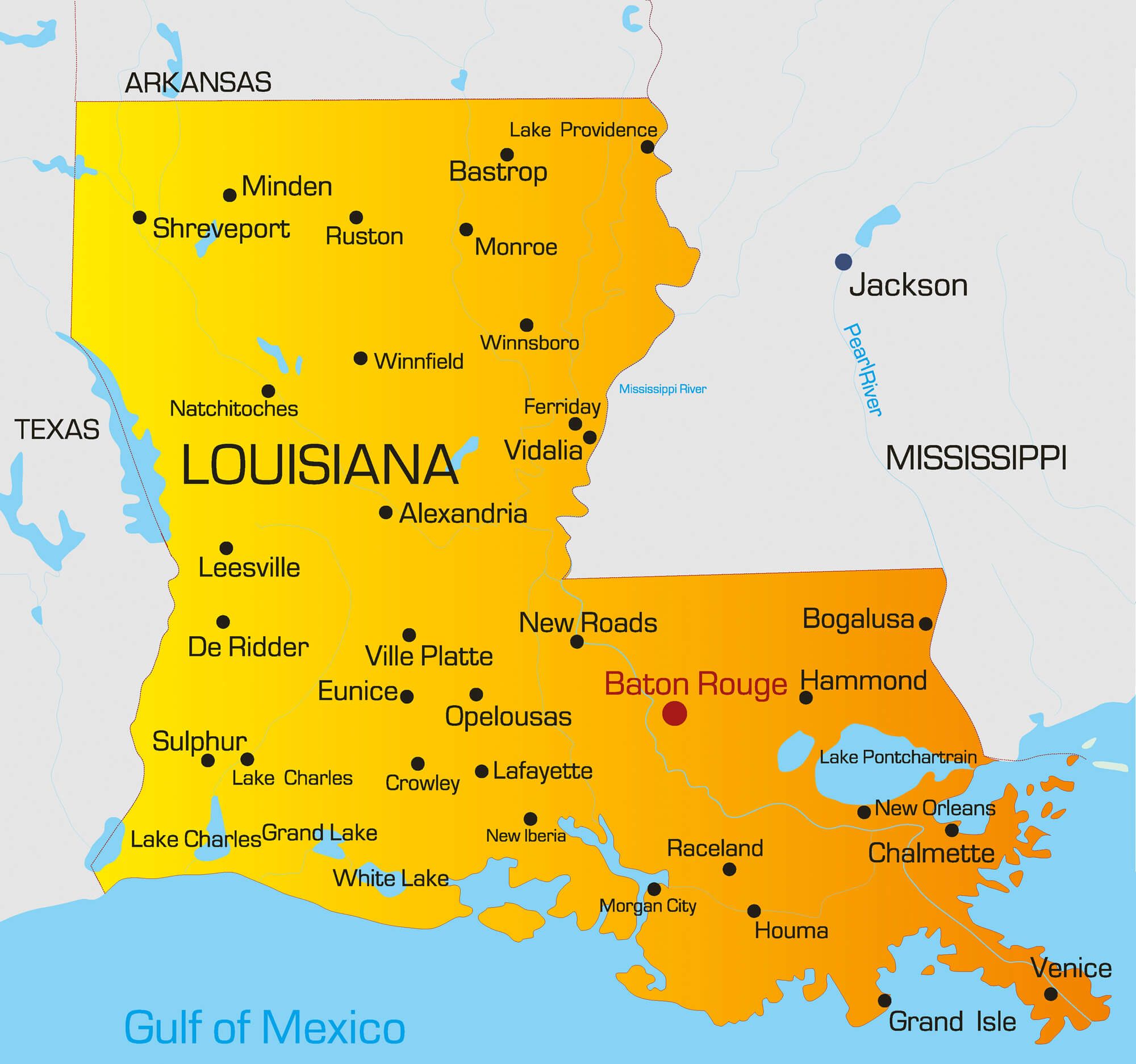
The golden years are often painted with images of relaxation, travel, and pursuing long-held passions, a well-deserved reward after decades of hard work. However, the reality of retirement living is often shaped not just by personal aspirations, but by critical financial decisions—chief among them, where you choose to call home. The impact of state and local taxes on a fixed retirement income can be profound, silently chipping away at savings and making those hard-earned dollars stretch less than anticipated.
While many states vie for retirees with promises of sunshine, amenities, and community, a closer look at their tax structures reveals a different story for some. Understanding the nuances of state income taxes, property taxes, sales taxes, and even estate or inheritance taxes is paramount for anyone planning their post-career finances. It’s not just about what you earn, but how much you get to keep, and certain locations present significant hurdles that can make a seemingly idyllic retirement spot less than ideal.
This article dives deep into the tax landscapes of ten states where retirees might find their financial comfort eroded by unexpected burdens. We’ll explore specific tax policies that make these locations less favorable for those living on pensions, Social Security, or retirement account distributions. Our goal is to provide clear, data-driven insights, helping you make informed decisions to ensure your retirement savings truly support the lifestyle you envision, rather than being siphoned away by the taxman.

1. **New Jersey: The Property Tax Titan**When it comes to financial planning for retirement, property taxes often emerge as a formidable adversary, especially for homeowners seeking long-term stability. While owning a home can provide a sense of security and a hedge against fluctuating rental markets, the cost of holding onto that asset varies drastically across the nation. For retirees eyeing the Northeast, New Jersey stands out with its exceptionally high property tax rates, a factor that can significantly impact annual expenses.
According to recent data from the Census Bureau, homeowners in New Jersey typically face an staggering annual property tax bill of $9,345. To put this into perspective, the context reveals that homeowners in Alabama, for instance, typically spend just $701 a year. This stark contrast highlights the potential for thousands of dollars in additional annual expenditure for retirees residing in the Garden State, making it a challenging environment for those on fixed incomes looking to minimize recurring housing costs.
While the state may offer beautiful coastlines and proximity to major metropolitan areas, the heavy burden of property taxes means that a substantial portion of a retiree’s budget could be consistently directed towards municipal coffers rather than personal enjoyment or unforeseen expenses. For anyone planning to retire with their home as a primary asset, New Jersey’s property tax landscape demands careful consideration and may signal a red flag for those prioritizing fiscal efficiency in their golden years.

2. **Hawaii: The Aloha State’s Hidden Tax Traps**Hawaii, with its idyllic beaches and warm climate, certainly holds a strong appeal for many dreaming of a tranquil retirement. However, beneath the surface of paradise, retirees may encounter a complex and potentially costly tax structure that can significantly diminish their retirement income. While some pension income is indeed tax-free, the exemptions come with crucial caveats that are important to understand to avoid unpleasant surprises.
Specifically, retirement distributions from a private or public pension plan are only tax-free in Hawaii if the retiree did not make contributions to the plan. This means that if you contributed to your employee retirement plan throughout your career, the income from that plan will be partially taxable. Furthermore, distributions from traditional 401(k) plans and IRAs, which are primary sources of income for many retirees, are explicitly taxable in Hawaii, directly impacting a substantial portion of many individuals’ retirement savings.
Beyond these specific retirement account taxes, Hawaii also imposes a broad income tax that can be quite steep. For taxable income, the state’s tax rates range from a low of 1.4% up to a substantial 11% (on more than $400,000 of taxable income for joint filers and more than $200,000 for single filers). While Hawaii does not tax Social Security benefits, the combination of taxable pensions (if employee-contributed), taxed 401(k) and IRA distributions, and a high general income tax rate makes Hawaii a state where the financial tranquility of retirement can be seriously compromised by its unique tax policies.

3. **Nebraska: Unsettling Income and Property Tax Burdens**Nebraska might not immediately come to mind as a prime retirement destination, and a closer look at its tax policies for seniors reveals why. For retirees focused on maximizing their fixed income and ensuring financial stability, Nebraska presents a dual challenge with its approach to retirement income and property taxes. While recent legislative changes have offered some relief, the overall picture can still be quite demanding.
Historically, Nebraska taxed Social Security benefits, a significant concern for many seniors. However, it’s worth noting that “Beginning in 2024, Missouri, Kansas and Nebraska completely eliminated their taxes on Social Security benefits.” This is a positive development that alleviates one burden. Yet, even with this change, the state continues to tax “all retirement income” that does not stem from Social Security. This comprehensive taxation of non-Social Security pension income and distributions from accounts like 401(k)s and IRAs means that a substantial portion of a retiree’s financial resources remains subject to state levies.
Adding to the financial pressure, Nebraska is also characterized by “high property tax rates.” This, coupled with the taxation of a broad range of retirement income, can lead to “the overall state and local tax bill for a senior could be thousands of dollars higher.” For those on a fixed income, where every dollar counts, these combined tax burdens make Nebraska a challenging environment for a financially secure retirement. It underscores the critical need for prospective retirees to understand the full tax implications of their chosen location.

4. **Louisiana: The High Cost of Everyday Purchases**While income and property taxes often grab headlines in retirement planning discussions, sales taxes represent a quiet, persistent drain on a retiree’s fixed income. Paid gradually with every purchase, they can be easily overlooked but accumulate significantly over time. For seniors in Louisiana, this often-underestimated tax category demands particular attention, as the state levies some of the highest sales taxes in the nation.
The combined state and average local sales tax rate in Louisiana can reach an eye-watering 9.565%. This places the “Pelican State” at the very top of the list for sales tax burdens, alongside Tennessee. For retirees who spend a significant portion of their fixed income on everyday goods and services—from groceries to household items and discretionary purchases—this high rate means that their purchasing power is consistently diminished.
Despite the fact that Louisiana “does not tax Social Security benefits,” the pervasive impact of its elevated sales tax rate means that the money saved on Social Security taxation might be funneled away through consumption. This makes Louisiana a critical state for fixed-income retirees to evaluate carefully, as the cumulative effect of high sales taxes can significantly strain a budget, making the cost of living higher than it might initially appear.

5. **Colorado: Rocky Mountain High… Taxes on Social Security**Colorado consistently draws retirees with its promise of “sunshine, mountains, and active lifestyle,” offering a vibrant backdrop for the golden years. For many, the appeal of outdoor activities and a beautiful natural environment is undeniable. However, for all its recreational advantages, Colorado presents a notable financial hurdle for seniors: it is one of the few states that taxes Social Security benefits.
Unlike the majority of U.S. states that exempt Social Security income from taxation, Colorado continues to levy this tax. While the context mentions that most states that tax Social Security provide “some sort of deduction, credit or income limit to minimize or offset the cost,” the very existence of this tax distinguishes Colorado from the vast majority of retiree-friendly tax states. For individuals whose Social Security benefits form a significant part of their retirement income, this can represent a tangible financial hit.
While the state may offer “several tax advantages” in other areas, the taxation of Social Security benefits remains a prominent feature that prospective retirees must factor into their financial equations. For those reliant on these benefits, the appeal of Colorado’s active lifestyle must be weighed against the persistent drain of state taxes on this crucial income stream, potentially reducing the overall financial flexibility and peace of mind during retirement.
The journey into retirement often involves careful consideration of where to settle down, and for many, understanding state tax policies on Social Security benefits is a critical piece of that puzzle. While the vast majority of U.S. states offer full exemption for these benefits, a select few continue to levy taxes on Social Security income. This can significantly impact a retiree’s fixed income, making financial planning a more complex endeavor.
As we continue our exploration of states that present notable financial challenges for retirees, we now turn our attention to the next five locations where Social Security benefits are subject to taxation. For individuals relying heavily on these benefits, the presence of state-level taxation can reduce their overall financial flexibility and peace of mind. Our aim here is to shed light on these environments, helping you navigate the complexities and make informed decisions about your retirement destination.

6. **Connecticut: The Nutmeg State’s Social Security Levy**For retirees considering the charming landscapes and rich history of Connecticut, a significant financial detail to factor into their plans is the state’s approach to Social Security benefits. Unlike the majority of states across the nation, Connecticut is among the select few that choose to tax Social Security income. This policy means that a portion of the benefits retirees have diligently earned over their working lives will be subject to state levies, directly impacting their net retirement income.
The taxation of Social Security benefits in Connecticut can present a tangible challenge, particularly for those on a fixed income where every dollar’s purchasing power is crucial. While the context reveals that many states which tax Social Security often provide “some sort of deduction, credit or income limit to minimize or offset the cost” of this tax, the fundamental fact remains that the income is not fully exempt. Prospective residents must carefully examine these potential deductions or credits to understand their actual tax burden and how it aligns with their financial goals.
Understanding this tax dynamic is essential for sound retirement planning in Connecticut. The cumulative effect of taxing Social Security, even with possible offsets, can subtly erode savings and make budgeting more constrained. For those prioritizing maximum retention of their Social Security benefits, Connecticut’s tax structure demands thorough due diligence to ensure financial comfort throughout retirement.

7. **Minnesota: Navigating the North Star State’s Tax on Benefits**Minnesota, known for its vibrant cities and abundant natural beauty, also features on the list of states that tax Social Security benefits. For many retirees, Social Security represents a cornerstone of their financial security, providing a reliable income stream. The decision by Minnesota to tax these benefits sets it apart from the majority of U.S. states that offer full exemptions, introducing an additional layer of financial consideration for seniors.
Minnesota, known for its vibrant cities and abundant natural beauty, also features on the list of states that tax Social Security benefits. For many retirees, Social Security represents a cornerstone of their financial security, providing a reliable income stream. The decision by Minnesota to tax these benefits sets it apart from the majority of U.S. states that offer full exemptions, introducing an additional layer of financial consideration for seniors.
This taxation means that retirees living in the “North Star State” will see a portion of their Social Security income contribute to state coffers, potentially reducing their disposable income. While the broad overview indicates that states taxing Social Security often implement “some sort of deduction, credit or income limit to minimize or offset the cost,” the presence of the tax itself necessitates careful financial planning. Retirees in Minnesota should investigate these specific provisions to determine how their individual income levels might mitigate or exacerbate this tax burden.
The impact on fixed incomes is a primary concern. Every dollar taxed from Social Security benefits is a dollar less available for living expenses, healthcare, or leisure activities. Therefore, for those weighing Minnesota as a retirement destination, a clear understanding of its Social Security tax policies, including any available relief measures, is crucial for maintaining financial stability and enjoying the state’s many offerings without unexpected financial strain.

8. **Montana: The Big Sky Country’s Income Consideration**Montana, with its vast open spaces and stunning mountainous terrain, attracts many seeking a tranquil retirement. However, the “Big Sky Country” also stands out as one of the states that taxes Social Security benefits, a policy that can significantly influence a retiree’s financial outlook. For individuals whose retirement budget largely hinges on these benefits, this taxation introduces a persistent financial consideration that requires meticulous planning.
The state’s decision to levy a tax on Social Security benefits means that a portion of this federally provided income will be subject to state income tax. While the general policy among states that tax Social Security includes “some sort of deduction, credit or income limit to minimize or offset the cost,” the core fact is that this income is not entirely protected from state taxation. Prospective residents need to carefully assess these mitigating factors to understand their effective tax rate on Social Security and the overall impact on their financial well-being.
For seniors on fixed incomes, the taxation of Social Security benefits can translate into a noticeable reduction in available funds. This makes it imperative for anyone considering retirement in Montana to fully grasp the state’s specific tax code regarding these benefits. Ensuring that one’s financial plan accounts for this particular tax is key to preserving the desired quality of life and preventing unforeseen budget constraints in the otherwise appealing environment of Montana.

9. **New Mexico: Southwestern Sun and Social Security Taxes**New Mexico, often celebrated for its unique cultural heritage and breathtaking desert landscapes, also features prominently among the states that tax Social Security benefits. This specific tax policy can be a significant factor for retirees, as it directly affects a primary source of income for many seniors. Unlike the majority of states that offer full exemptions, New Mexico’s approach requires a proactive understanding of its implications.
The taxation of Social Security benefits in the “Land of Enchantment” means that a segment of a retiree’s Social Security check will be allocated to state taxes. While the broader context indicates that states taxing Social Security often provide “some sort of deduction, credit or income limit to minimize or offset the cost” to mitigate the burden, the existence of the tax itself means that retirees cannot fully exempt this income. It becomes essential for individuals to investigate these specific relief options to assess their potential eligibility and the actual financial impact.
For retirees on fixed incomes, this taxation necessitates careful budgeting and financial adjustments to ensure long-term stability. The appeal of New Mexico’s climate and lifestyle must be carefully weighed against the ongoing financial implications of its Social Security tax. Thorough financial preparation, including understanding any available tax breaks, is vital for those hoping to enjoy a secure and comfortable retirement in this southwestern state.

10. **Rhode Island: The Ocean State’s Approach to Retirement Income**Rhode Island, the smallest state in the U.S. but rich in coastal beauty and historical significance, is another state that taxes Social Security benefits. For retirees, this particular tax policy is a critical point of consideration, as it directly influences the amount of their Social Security income they get to keep. Unlike the widespread practice of exempting these benefits, Rhode Island’s approach means an additional layer of financial planning is required.
The state’s decision to tax Social Security benefits can have a noticeable effect on the financial flexibility of seniors, especially those relying heavily on these payments. While the general information notes that states taxing Social Security often provide “some sort of deduction, credit or income limit to minimize or offset the cost” to help mitigate the financial impact, the underlying tax still exists. Prospective residents should diligently research these specific provisions to understand how they might apply to their individual income situations and minimize their tax liability.
For fixed-income retirees, every dollar counts, and the taxation of Social Security benefits can subtly but significantly reduce their overall purchasing power. Therefore, for anyone considering retirement in the “Ocean State,” it is crucial to fully comprehend the implications of its Social Security tax structure. Ensuring that this tax is factored into retirement budgeting and financial projections will help secure a comfortable and fiscally sound future in Rhode Island.
This deep dive into the tax landscapes of these ten states underscores a fundamental truth about retirement planning: where you choose to live can be as impactful as how much you save. While the allure of specific climates or lifestyles is strong, the hidden costs of state and local taxes, particularly those impacting fixed incomes and Social Security benefits, can quietly diminish your hard-earned financial security. From high property taxes to comprehensive income taxation and pervasive sales taxes, each state presents a unique set of challenges. By understanding these nuances, prospective retirees can make data-driven decisions, ensuring their golden years are truly golden, free from unexpected financial burdens, and allowing their savings to truly support the vibrant, comfortable life they’ve always envisioned. Staying informed about evolving tax laws is not just prudent; it’s essential for a truly worry-free retirement.



